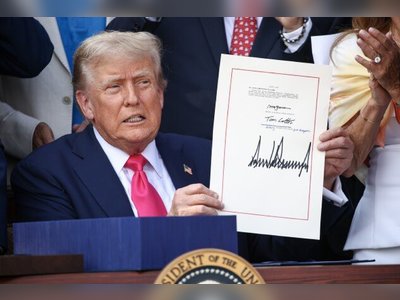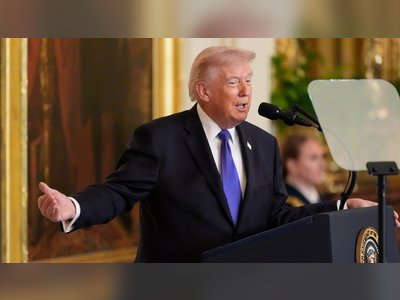New Zealand Proposes Social Media Ban for Under-16s Modelled on Australian Legislation
Prime Minister Christopher Luxon's draft laws require age verification for social media users to protect children from online dangers.
New Zealand Prime Minister Christopher Luxon has proposed a legislative measure to prohibit children under the age of 16 from accessing social media platforms, a move reflecting increasing global concerns about the safety and well-being of minors online.
The proposal draws parallels with similar legislation passed in Australia, which imposes strict age verification requirements on social media companies.
The draft laws introduced by Luxon mandate that social media companies must verify that their users are at least 16 years of age, failing which they could face fines reaching up to NZ$2 million (approximately $1.85 million).
Luxon emphasized the need for these measures as a safeguard against the various risks associated with social media, including exposure to harmful content, cyberbullying, and online exploitation.
In a statement to the press, Luxon highlighted the necessity of holding social media platforms accountable for the safety of vulnerable children.
He noted, "It's time that New Zealand acknowledged that, for all the good things that come from social media, it's not always a safe place for our young people to be."
The government is currently working on details regarding the timeline for introducing this legislation to Parliament, with Luxon expressing optimism about securing bipartisan support.
The draft legislation has been prepared by the National Party, which is the largest member of the current three-party governing coalition in New Zealand.
Attaining the backing of the coalition's smaller partners will be integral for the bill's passage.
Catherine Wedd, a member of the National Party who played a significant role in drafting the bill, voiced a shared concern among parents regarding their children's engagement with social media.
"As a mother of four children, I feel very strongly that families and parents should be better supported when it comes to overseeing their children's online exposure," Wedd stated.
The proposed legislation currently does not clarify which specific social media platforms would be affected.
However, it is noted that YouTube may be exempt to allow children to access the site for educational purposes.
Last year, New Zealand had already restricted mobile phone usage for children during school hours in an effort to combat declining literacy rates.
The initiative has faced criticism from major tech companies, which have labeled the proposals as 'rushed', 'vague', and 'problematic'.
Australia's stringent legislation, which serves as a reference point for New Zealand's proposed ban, is set to be implemented by December 2023.
The proposal draws parallels with similar legislation passed in Australia, which imposes strict age verification requirements on social media companies.
The draft laws introduced by Luxon mandate that social media companies must verify that their users are at least 16 years of age, failing which they could face fines reaching up to NZ$2 million (approximately $1.85 million).
Luxon emphasized the need for these measures as a safeguard against the various risks associated with social media, including exposure to harmful content, cyberbullying, and online exploitation.
In a statement to the press, Luxon highlighted the necessity of holding social media platforms accountable for the safety of vulnerable children.
He noted, "It's time that New Zealand acknowledged that, for all the good things that come from social media, it's not always a safe place for our young people to be."
The government is currently working on details regarding the timeline for introducing this legislation to Parliament, with Luxon expressing optimism about securing bipartisan support.
The draft legislation has been prepared by the National Party, which is the largest member of the current three-party governing coalition in New Zealand.
Attaining the backing of the coalition's smaller partners will be integral for the bill's passage.
Catherine Wedd, a member of the National Party who played a significant role in drafting the bill, voiced a shared concern among parents regarding their children's engagement with social media.
"As a mother of four children, I feel very strongly that families and parents should be better supported when it comes to overseeing their children's online exposure," Wedd stated.
The proposed legislation currently does not clarify which specific social media platforms would be affected.
However, it is noted that YouTube may be exempt to allow children to access the site for educational purposes.
Last year, New Zealand had already restricted mobile phone usage for children during school hours in an effort to combat declining literacy rates.
The initiative has faced criticism from major tech companies, which have labeled the proposals as 'rushed', 'vague', and 'problematic'.
Australia's stringent legislation, which serves as a reference point for New Zealand's proposed ban, is set to be implemented by December 2023.












